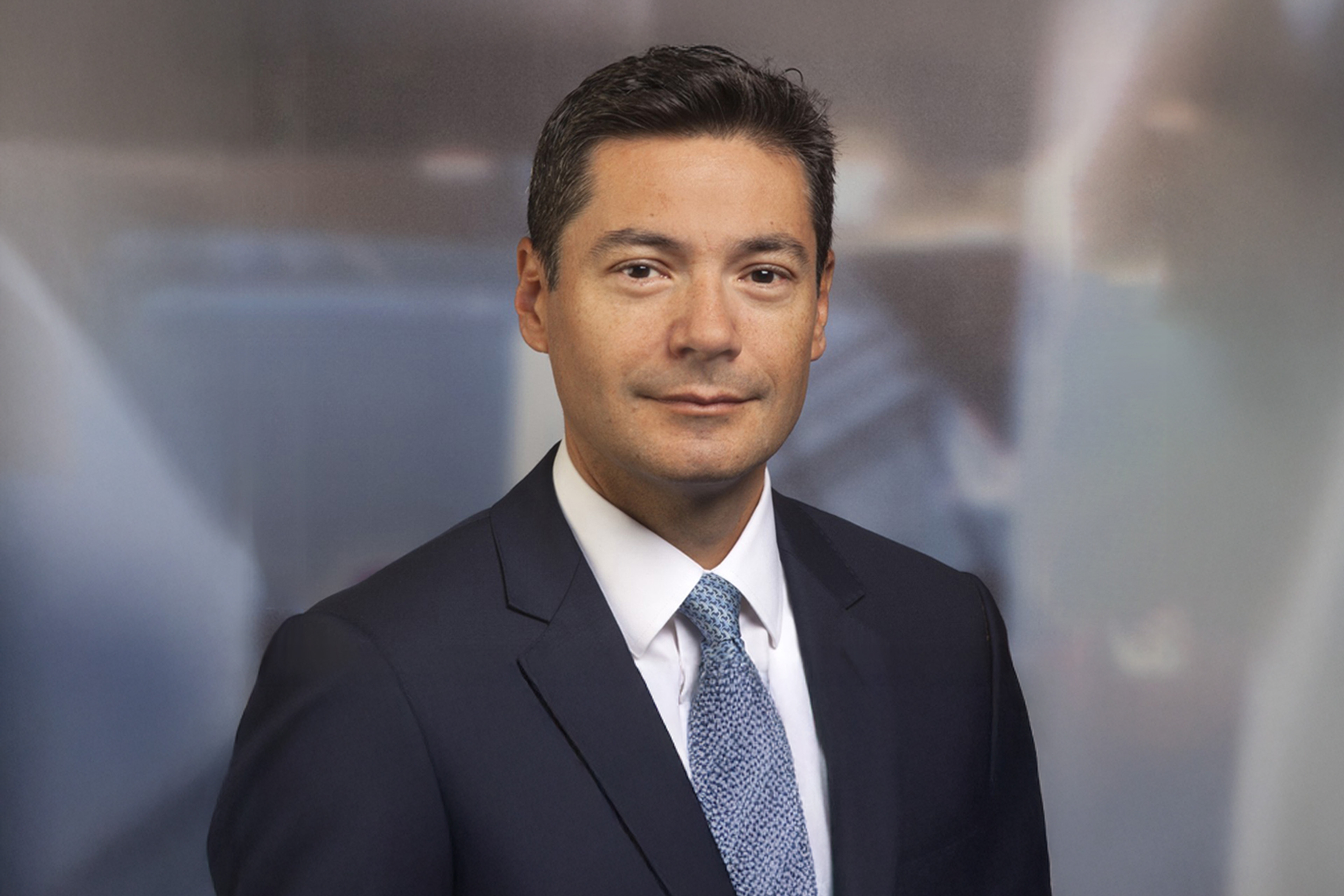EY refers to the global organization, and may refer to one or more, of the member firms of Ernst & Young Global Limited, each of which is a separate legal entity. Ernst & Young Global Limited, a UK company limited by guarantee, does not provide services to clients.

In an EY roundtable, leaders expressed that they are cautious about a potential recession, noting the uncanny resilience of consumer and corporate finances.
In brief
- About half of CFOs at the event said they were maintaining business as usual for now, although different sectors are being impacted more heavily.
- These leaders are also eyeing future growth instead of more defensive, short-term strategies, while also performing scenario planning and updating playbooks.
CFOs are highly focused on navigating an economic environment unlike any other we’ve experienced in our lifetimes. A looming recession, continued inflationary pressures, surging interest rates, significant movement in foreign-exchange rates and market volatility are factors that bring plenty of uncertainty — but resilient consumers, a strong labor market and companies’ willingness to preserve strategic investments are all elements that provide positive signals for 2023.
These were some of the key areas discussed by about 30 CFOs of Fortune 500 companies at the October EY CFO Roundtable, chaired by Julie Boland, EY US Chair and Managing Partner and EY Americas Managing Partner, and Juan Uro. The roundtable also included perspective from Carmine Di Sibio, EY Global Chairman and CEO, and Gregory Daco, EY-Parthenon Chief Economist. The dialogue surfaced key takeaways for this uncertain environment:
- CFOs were cautious and uncertain but not necessarily pessimistic about the current outlook – “stay the course” seems to be the pattern.
- The strong labor market is sustaining consumers’ ability to spend and the economic momentum that we’ve seen, and capex levels are also mostly being maintained.
- Contingency planning is key, and this unique environment has prompted leaders to re-evaluate their recession playbooks, clarify strategic imperatives, and confirm or reset priorities.
- Looking to 2023, CFOs are focused on driving growth and advancing digital transformations – a clear sign that they will continue investing in the long-term fundamentals of their organizations instead of pushing the brakes with a short-term mindset.
Preparing for the unknown while staying the course
From day to day, CFOs are confronted with another data point about the broader economy, all pieces of a puzzle that don’t quite seem to fit together. “Most people believe that we’re going into a recession or are in one already,” Di Sibio said. “C-suite leaders are modeling the duration of a downturn and how it gets tamed.”
Polls during the roundtable reflect a measured amount of uncertainty but not pessimism — in fact, many companies were not making dramatic changes. About half of CFOs at the event said they were maintaining the status quo in their operations for now, while 20% were making contingencies and only 28% were already taking action based on an anticipated downturn. Yet 60% reported that they were not curtailing capex at all, and 32% were deferring or canceling only low-priority investment. And just 12% said they had initiated layoffs, while 44% were moving ahead with hiring without constraints.
“There isn’t a sense of panic across sectors,” Daco said. “There is a monitoring of the situation. Scenario building is useful, and some strategic and tactical actions are being put in place.”
Resilience underpins today’s economy
Consumers and corporations are not yet buckling under high inflation and high interest rates. A CFO in financial services noted: “Deposit levels continue to be high even though consumers are still spending. They’re not overly leveraged. That can be fueled by merit compensation increases and the strong employment markets.”
In consumer products, another CFO affirmed that spending levels were being maintained. “Typically after the Fed acts this forcefully, even a 50-basis-point rate increase, the consumer often shuts down,” he said. “Our channel partners are being rational in terms of how they’re managing balance sheets. But the consumer has stayed strong.”
To some extent, that resilience is more muted in the business-to-business realm. “On the industrial side, we see significant slowdowns, in areas where there is no demand because the inventory is so high,” said a CFO in a packaging business. “They’re worried about pricing.”
But capital expenditures and business transformations are also largely advancing. “This is a good time to double down on our investment strategies to grow stronger,” a CFO said. “We haven’t been able to deploy all the capital that we’d like, like in supply chain.” Another who works in equipment manufacturing added: “We’re not seeing pullbacks on capital. The world is falling down around us, it seems like, but we’re exceeding plan expectations.” Factors such as these are among the reasons why Daco is reassured and why he believes a recession in the US is likely to be mild.
A potential recession under full employment
Although the impact is far from uniform across sectors, overall job growth is twice as elevated as before the pandemic, quit rates are still elevated, and layoffs are near record lows — all prominent factors keeping consumer finances healthy. “I’m surprised by how our clients continue to add employees during this period,” said a CFO of a company that manages payroll for others. “The employment levels are growing, but at a slower pace. Many of us are thinking about: when do we see hiring freezes and layoffs filter through on the ground?”
Amid so much uncertainty, companies are striking a balance on hiring. Wage growth was still trending at about 5%, which Daco noted was “uncomfortably high,” but he added that he wouldn’t be surprised if that fell by half a percent by the end of the year. Some have been adding benefits and boosting contributions to 401(k) plans to keep their employees if they can’t compete with compensation that outpaces inflation. “Small companies that can least withstand turnover are taking margin cuts or finding other offsets,” a CFO in financial services said.
Others were seeking to lower headcount through attrition. “It’s clear that in the pandemic, when we had a big upcycle, we brought a lot of people onboard, and we have to trim that back a bit,” a tech CFO said. Another said he was relying more on contingent workers and consultants to avoid making long-term people decisions.
2023: revisit your playbooks and confirm or reset priorities
Now is the time to take your prior recessionary playbooks and review them, perhaps coupled with scenario planning based on varying declines in consumer finances. One CFO in financial services said: “We asked managers to re-underwrite their strategic projects and challenge them, or in some cases just to stop them. We’re not going to let this crisis go to waste — we’ll force the issue on prioritization.”
Another participant took a similar approach from an opposite direction: “We’re ringfencing the projects we’ll never cut and then trying to get the commitments that we’re moving forward with 5- to 10-year investments.” A life sciences CFO said his company was looking at product lines that were semi-attractive before and thinking about where to exit businesses and reallocate resources into higher-growth areas. Other discussed boosting governance to resist the “on-off switch” in such volatile times. And when it comes to metrics on results, a consumer products leader said his company was moving toward percent ranges called “landing pads” instead of hard targets.
In light of the resiliency of the economy, coupled with ringfencing of investments and other proactive strategies, CFOs are still prioritizing growth above all, while digital transformation and cost reduction are also high on the agenda. For 1 in 5 CFOs, workforce and talent retention remain a focus, highlighting the continued strength of the labor market overall.
Summary
While the future remains cloudy, this economy, unlike any we’ve experienced, shows opportunity amid the complexity, and CFOs are thoughtfully positioning their companies for what comes next.
Related articles
How CFOs can be the drivers of organizational change
Joel Bernstein CFO, Customer Success & Head of Global Finance at SAP joins the podcast to discuss SAP’s business model transformation.
EY Center for Executive Leadership CFO Roundtable – April 2022
Chief financial officers (CFOs) from major US companies discuss digital investments, geopolitical context and inflationary outlook at April 2022 CFO roundtable.
Three lessons from Pat Grismer, an accidental CFO with an artist’s touch
After a career at some of the largest consumer brands, our CFO Advisor in Residence describes how he made an impact in the C-suite. Here are three lessons.
How EY can help
-
Helping top leaders to achieve peak performance, professionally and personally, by providing insights and networking opportunities.
Read more






